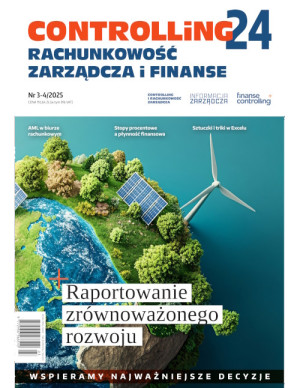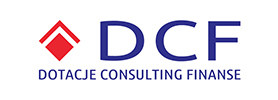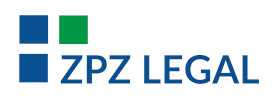We live in a changing, volatile environment. We don’t know what the future shall bring. Where now do you see the opportunities and risks in managing ecological issues in the company? Nowadays it seems to be important not just to consume, but also to care about our ambient. Where do you see opportunities in ecological approach to development of the company and products?

I think we have no chance to work without ecological aspects in a company, because there are law and rules, that every enterprise has to fulfill and, of course, it’s important to do that in an efficient way. Managing ecological issues is also an important task for a controller. But, on the other hand, it is essential to be aware of the fact, that now, in many markets and products, customers expect goods, which are ecologically clean and, as a company, we have to live up to these expectations by finding in our range of products the relevant ones. In my opinion in the future every company will have to deal with this topic. It means that in tenyearstime every single company must be an ecological company.
And are there any risks or threats?
Of course there are risks, but ones that are the same for every any other company. One of the main is the fact, that fulfilling law orders is costly. The other risk is not finding specific products or market niches for ecological success. But, in my opinion, this is a kind of risk, that every company has to deal with nowadays. And there are general risks every company has, because of the turbulences and volatilities in our economy.
Could you indicate at what goals should an ecologicallyfriendly company aim?
I think that objective goals in a market economy are still the same – we must be profitable – that’s it. And I think that it is important to know that sustainability and economy are not enemies – enterprise could be successful with green topics and products.
How important are the control procedures for environmental management?
It is as important as any other processes of control, because product costs are depending on the efficiency of processes, and also – in a broader perspective – perhaps even market success, since bad processes are bad successes in the market.
Why is it important to involve top management in building environmental awareness of the company and what arguments in this process are crucial?
First of all it is important, because it is a matter of strategy. Furthermore the crucial argument is that the future success of a company cannot be separated from green issues.
What could be the consequences of inadequate environmental management? If one doesn’t valuate environmental management enough?
There is a problem with governmental authorities, because now there are so many important rules in this field and if you don’t fulfill them there are high fines and entrepreneur won’t be allowed to manage his own company in future. Without ecological aspects companies existence is at risk, I would say.
Can ecology be economical?
Yes, of course. I would say more – not even it could be – it must be, because today’s customers want sustainable products, the market demands them and there’s no other way.
What are the key indicators that can be used for controlling ecology in the enterprise?
There are a lot of them. The top KPI is profit of course, profit and cost. Depending on which market the company works on, it needs different set of KPIs. In many fields there are i.e. carbon dioxide or water. For example, in German company, Hans Grohe, the main issue is water, in other company it could be usage of energy. Everyone has to analyze for himself what are the key performance indicators in one’s company and then ask, how big impact it has on a business success.
Thank you for your time.
PROF. DR. DR. H. C. MULT. PÉTER HORVÁTH
Chairman of the Supervisory Board Horváth AG, who is seen as one of the cofounders of Controlling in Germany. Born in Hungary, defined by „Wirtschaftswoche” as „Controlling Guru“, the author of about 500 publications in this topic. Coeditor of magazine „Controlling” and „Wissenschaftsmanagement”. In addition to his various professional activities, he also works extensively in business practice. In 1981 he cofounded a consulting company Horváth & Partners and, at the same time, Head of Controlling Department at the University of Stuttgart. In 2000 he turned the management of the company Horváth & Partners as the Chairman of the Supervisory Board of Horváth AG. He is currently a member of the Management Board and the sole shareholder of International Performance Research Institute (IPRI). In the years 1975-1980, as a professor, he was Head of Controlling Department at the Polytechnic (now University of Technology) in Darmstadt, the first of its kind in the German Department. He also worked as a visiting professor in New York, Vienna, Sao Paulo and Shanghai.
Przypisy / Źródła / Podstawa prawna
PROF. DR. DR. H. C. MULT. PÉTER HORVÁTH
Chairman of the Supervisory Board Horváth AG, who is seen as one of the cofounders of Controlling in Germany. Born in Hungary, defined by „Wirtschaftswoche” as „Controlling Guru“, the author of about 500 publications in this topic. Coeditor of magazine „Controlling” and „Wissenschaftsmanagement”.








